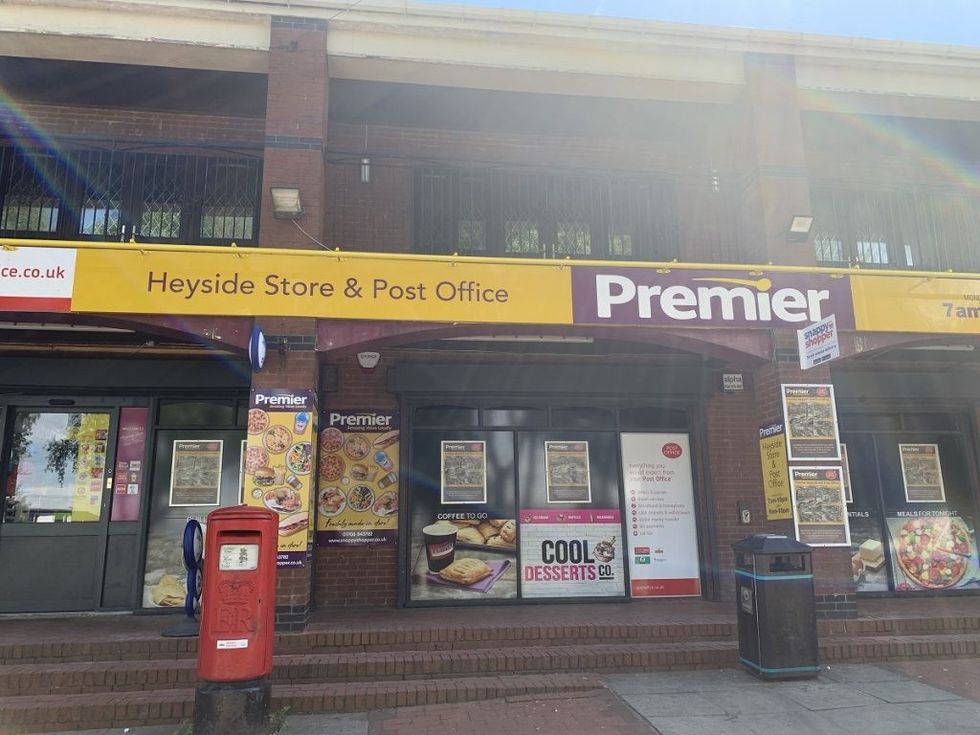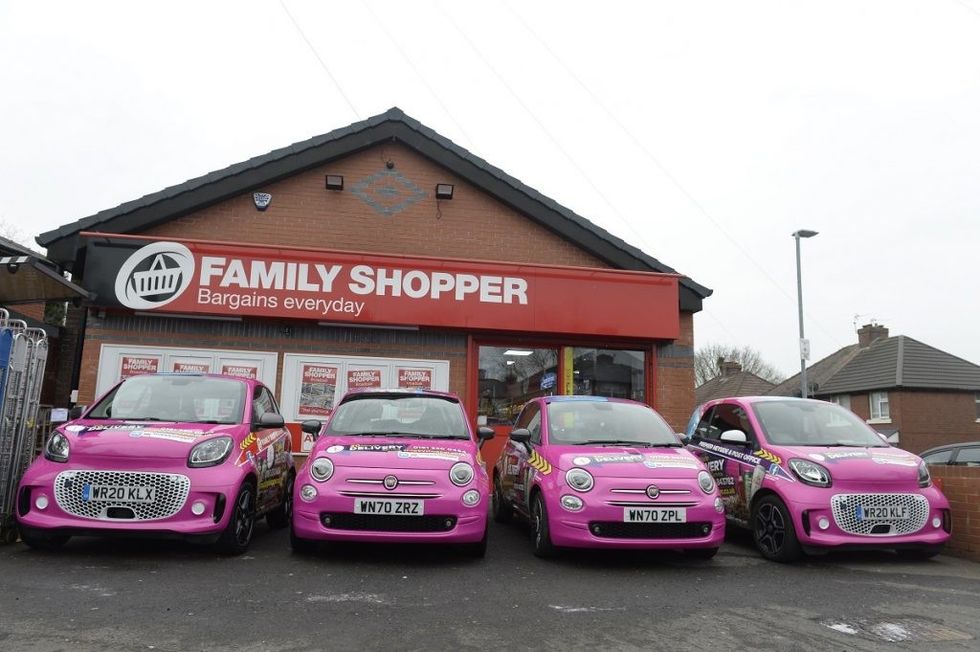Mos Patel, who runs two stores in Greater Manchester, has been named as the Impulse Retailer of the Year at the 2021 Asian Trader Awards, the second consecutive win for Mos at the prestigious awards, after winning the Food to Go Retailer award in the previous edition.
Both his stores, Premier Heyside in Oldham and Family Shopper in Ashton-Under-Lyne, made it into the shortlist, and declared joint winners for the Impulse Retailer Award, supported by State Bank of India.
Impulse buying represents between 40 and 80 per cent of all purchases, according to industry research, and the role of sensory experiences in these purchases are well documented. Visual stimulus is key, but Mos strives to stimulate all the five senses of his customers as they course through the stores. In fact, when a customer enters the store, it’s the smell of the food from their in-store kitchen that welcomes and lures them.
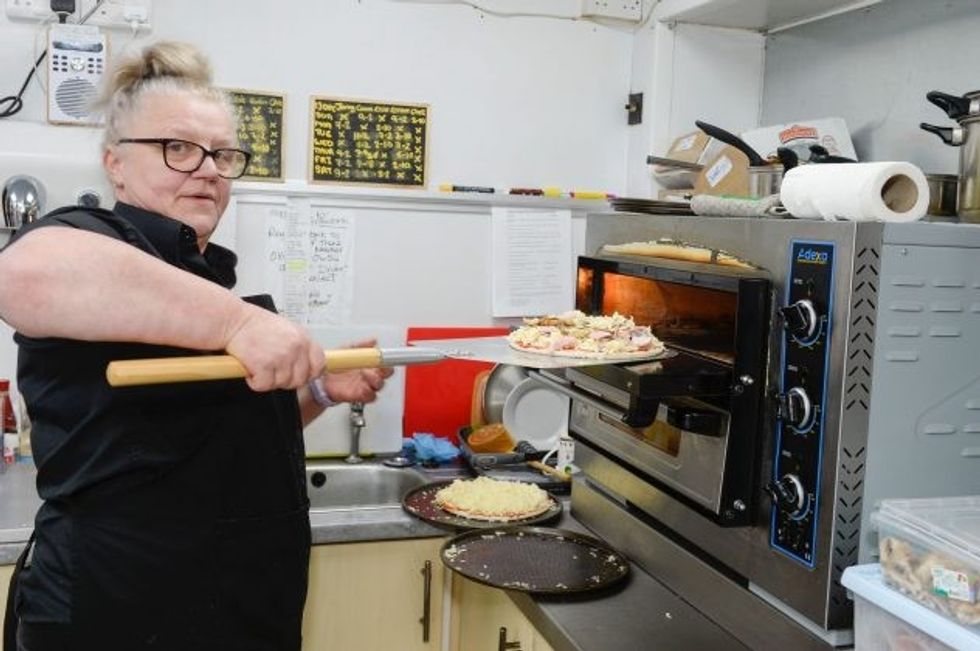
“A lot of the customers are working people and they are using the shop for convenience, or they are using the post office. So when they smelt the food, they know we are doing the food, and they could grab food on the go as well. So that helps, basically everything complements each other,” Mos says.
“Then what we did as well is, while they're in the queue, we put the impulse foods, like cakes and all that. So they start choosing them.”
Planning a route
The Ashton store is laid out to make it as easy as possible for shoppers to find what they want but, at the same time, to tempt them to make additional impulse purchases. As the store is located in a low-income area, Mos ensured that price points remained at the value end of the scale. This, coupled with regular promotional activity brings in a high level of repeat footfall to the store.
The Oldham store has a very busy post office counter which attracts a lot of footfall, and during a recent refit the layout was re-jigged with aisles re-positioned to run horizontally instead of vertically – a change which now means that post office customers must now walk past the full food to go offer and promotional bays to reach the counter.
Mos reveals that the refit has been a result of falling sales, which prompted him to look at the shopper behaviour and analyse it.
“We've noticed that the behavior of people has changed. For example, they were using the post office, and they'd go down the queue in the post office aisle. You'd normally think that behavior would be to avoid obstacles and they’d walk down the chocolate aisle but this wasn't the case. So obviously, each store is unique and different to another store, depending on the area,” he notes.
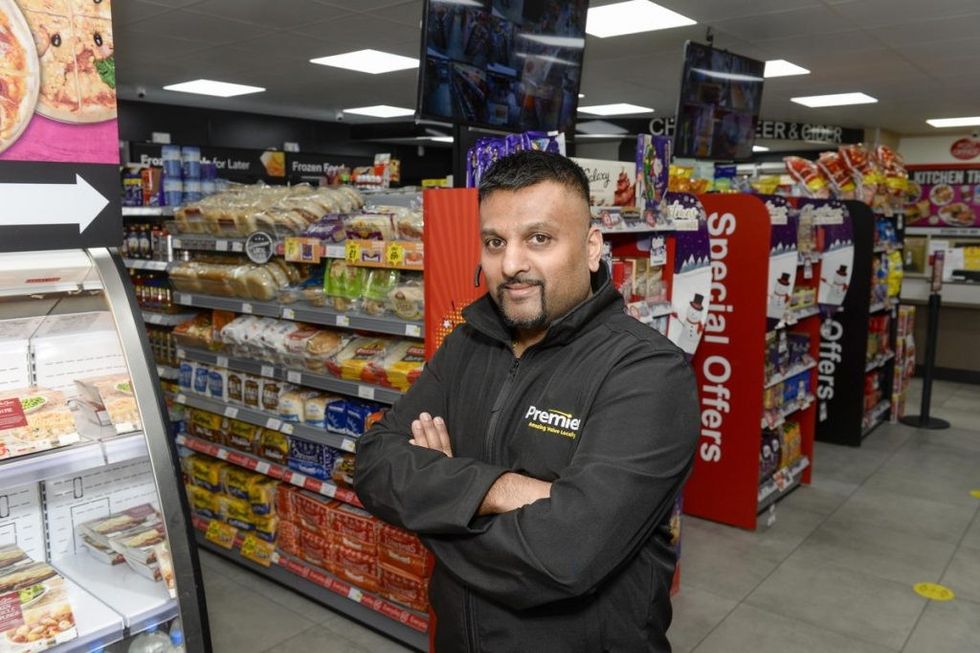
The change in the layout meant the customers have to queue from the rear of the shop, and they have to walk around to join the queue. Mos has also started selling the post office paraphernalia - letters, envelopes, sellotapes and such - to increase the revenue, placing them near the queue.
On the retail side, their impulse strategy revolves around promotions, putting all the ‘heavy promotions’ on the front end, making it unmissable for the shoppers. A lot of trial and error has also gone in perfecting his merchandising strategy for impulse buys.
“We put chocolate hanging bags, but that didn't work. So we moved the chocolates back and we swapped it for sweets. That obviously helped our impulse sales,” he says.
Playing the margins
For the counter, he decided against cluttering, instead deploying select high margin products like e-cigarettes at the strategic location. “You could put anything in the counter and it's gonna sell regardless. What we did was we emptied the counter, but we put high margin. So when they're in the queue they could get a cake, they could look at the e cigarettes, they could obviously look at some confectionaries which were hanging at the bottom. So the impulse is always there,” he adds.
His food to go operation also plays a major part in driving impulse sales, with the added advantage of providing high margins. He has placed dump bins around the store, putting anything they get on promotion in them. The store also makes great use of signage to flag up offers which in turn drive impulse sales.
“We put signs in, something like welcome and goodbye and little things that they might just see.” he explains. “As soon as you enter, where the hot ready meals and sandwiches are, we put kitchen signs so that they know we freshly make it. It's neon pink and reflects our deliveries.”
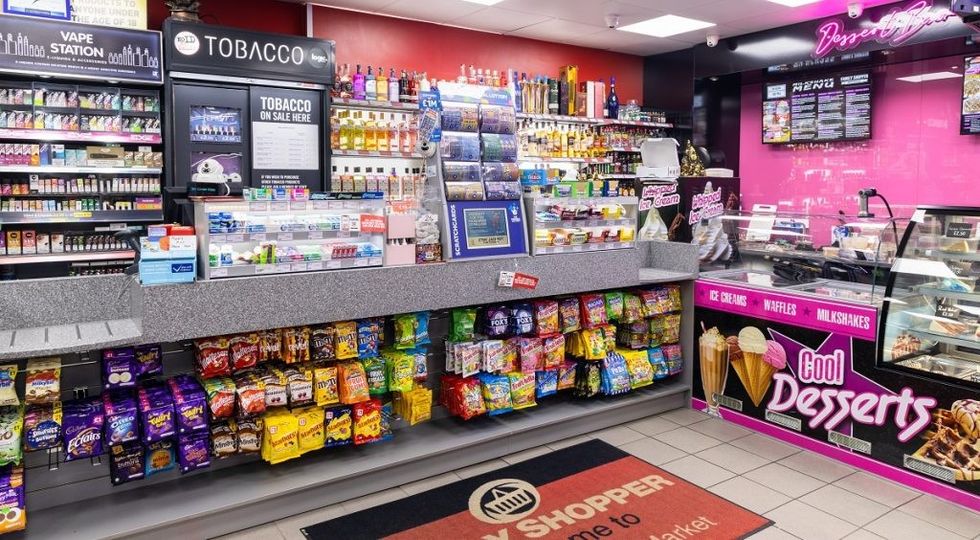
Mos says it’s the customers with limited time who are their target. “In two minutes, if they came in, what can they see? Realistically they might not see all the stuff we offer, but they'll get a certain smell,” he says.
“The smell, that's the one,” he emphasises the appeal of the senses! They promote their home delivery offer in store with a cartoonish display showing one of their staff in a car with the wheels moving, which got a sound on it. “So when he speaks, it's quite funny. We're not trying to sell things, but we're just showing them, ‘look, these are the apps’,” he says.
While these are little things per se, Mos reveals a lot of thought has gone into designing each of the elements, particularly taking a critical look at their layout. And, that reflects in the sales. “We know our layout is working, because our sales have increased. So what we try to do now is to improve,” he adds.
They also analyse products that are not selling in the impulse category, and constantly move it around to keep it fresh. “We got a local sweet supplier, we tried his, and that worked, but then they got bored, you see, so we are changing it like every six to eight weeks,” he explains.
“Same with cakes. We will get five, six cakes. Then a month or two later, we will make another six type of cakes, different coloured ones. It's not a matter of just keeping the same trend, we are consistent about it.”
Moving along
Mos notes that standing still is not an option in the sector, “if you stand still, you're gonna go backwards,” and you always have to innovate, even if you get things wrong sometimes.
“You got to believe in yourself, you know, because how it is. And even if you get it right, doesn't mean you've done it, you still have to keep changing it,” he says.
As an example, he points to the Cadbury promotion they have launched last month. “We sacrificed one of our promotions. Now, six months down the line, we might say, ‘you know what, cancel the contract, although it’s a 12-month contract, if there's an exit fee, we'll pay, it doesn't matter.’ If it’s selling and it continues to sell, fine, we'll keep it. But you got to be ready to make that sacrifice,” he says.
Mos also gave away the ‘dead stock’. “We reduce as the first step, and then we give away. Yes, it hurts to give it away because you've invested money. But what's the point if it's not selling? Give it away and never buy again, because you need space to put new products in a new trial,” he says.
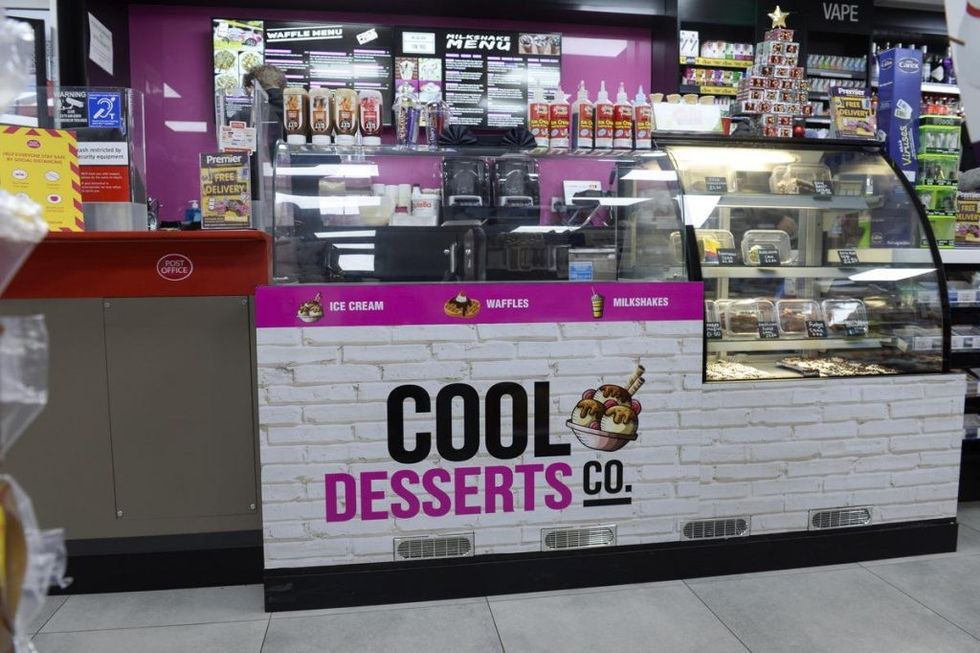
He notes that the biggest challenge in the impulse is the plenty of options available now. “Look how many Lucozade flavors are there. And they launch new flavors every three months! So that's where you have to jump on the bandwagon,” he says.
His approach is to stay on the new products, discontinue some of the mediocre products, and always keep the core in. “What we do is we work with the reps, and this is how we get our margin. So when it's a new product, the prices are low. We'll try it, we'll sell it, and we'll get rid of it. If it's an exceptional sell, if it's worth keeping, then we'll keep it,” he explains.
Another method is to buy the new products in bulk, though it’s a risky proposition. “When there was Cadbury Twirl Orange launched, we bought pallets. So we were ready. And then there was a shortage. So you have to put the money where your mouth is, although it's a risk. For example, a pallet of chocolates, what you're talking is £900 to £1000,” he says.
Mos has done the same with AU Vodka during its launch, buying in pallets. “It does tie a lot of your money up. And it's quite scary,” he admits. “Sometimes you could make a loss. So when the AU got common, everyone knew about AU, then we didn't bother with it.”
He observes that the cost of living crisis is impacting shopper behavior in many ways, and impulse is particularly affected. And, this is clearly evident in their online sales.
“Customers that are going for the deliveries tend to go for larger packs. But now with the challenges of the utilities, the larger packs have started to reduce in sales. They're going to revert back to the single packs. So, looking at three months down the line, we're quite hesitant,” he says.
Free stock is now the centerpiece of his online business, buying a pallet of a product from the wholesaler and give out free as long as they can negotiate a deal. “People no longer got that spare pound. They're being very fussy and choosey,” he notes.
In the store, he focuses on high margins to tide over the crisis. “Anything that's low margin, we don't even bother selling it, even if it's popular, because we've got so many people working for us. Our overheads are high. So we have to look at the average spend,” he says.
Light-fingered
He adds that the crisis has been a double whammy, as theft has now gone up. “It’s probably doubled, in fact. We all know that the criminal picks 20 bacons and they'll run out. But they come in once in a blue moon, they're gonna do it regardless of what we do, but the general customers are now increasing. So that's affecting us. But we can't put prices up because they're under stress,” he says.
Two other issues that compound the problem is the share of price-marked packs they sell, which got squeezed in margin, and the product availability at the wholesalers. And, above all the energy bills are hitting the business hard. He is now switching off his refrigerators intermittently.
“We've had to resort to that because at the moment my bills are almost 14.9p per unit kilowatts, works out about £1700 a month right now, but the cheapest I've got – I have been shopping around, I've got brokers involved – is 31p. Everyone else has been quoted me 35p. So that means that bill now is going to be hitting £3200 a month,” he explains, posing the question: “So, it means I'm working for the electrical company, right?”
Of course, he’s got a point there, and he is now even telling his staff to show the bills to the customers if they complain.
“I'm coaching my team and say ‘look, if customers complain, you just got to say to them. If you go to a supermarket I'm sorry, your drinks are not chilled, and we have to now earn a living.’ I've left a copy of the bill downstairs, to say, ‘look, this is every month, how can I afford to do it?’,” he says, matter of factly.
It sounds bit of a departure from last year, when Mos enthusiastically explained his award winning food to go operation. Make no mistake, impulse is still a wining category at his stores, despite the crisis, but at present he is focused on sustaining the sales.
“I think the next 12, 24 months will be disruptive. We don't know exactly how our overheads are going to go, what's going to happen with the market. It's not within our control. So I think this is the time where you'd be reactive,” he signs off.






